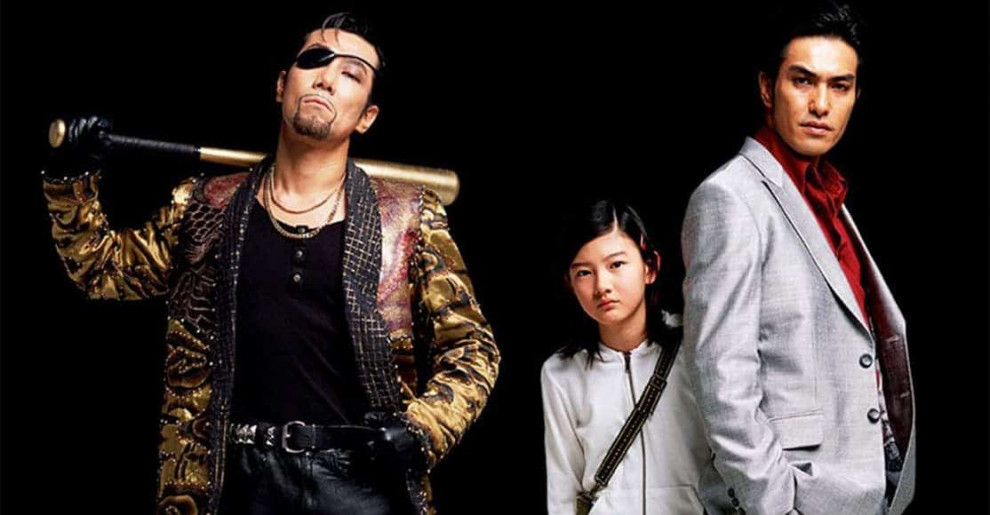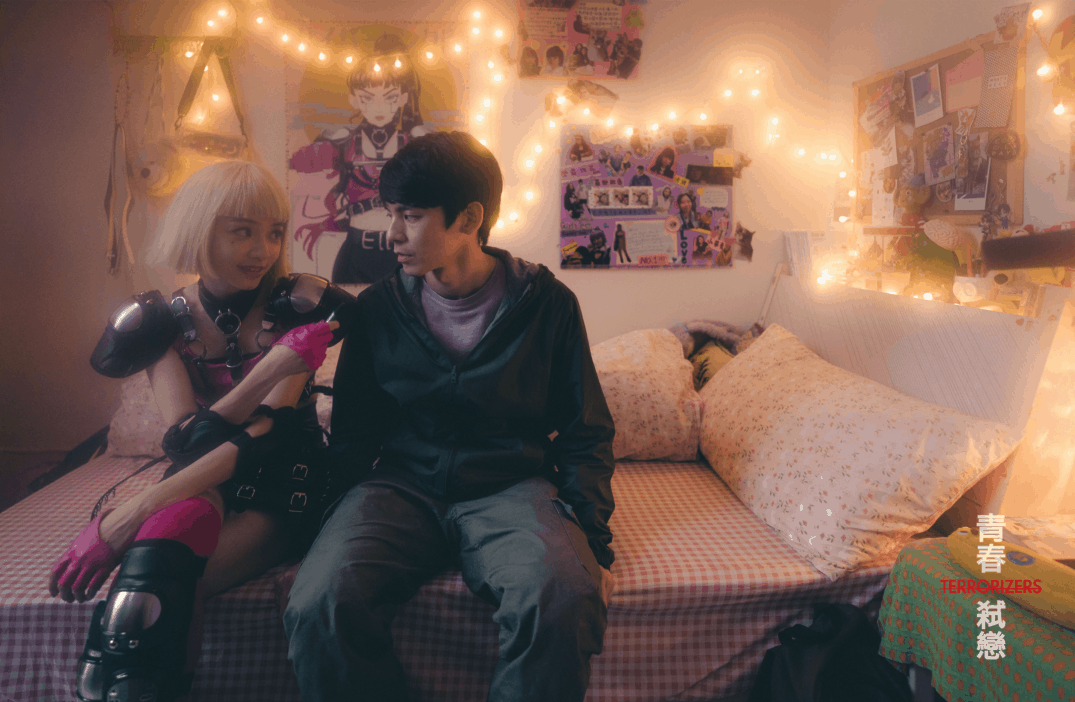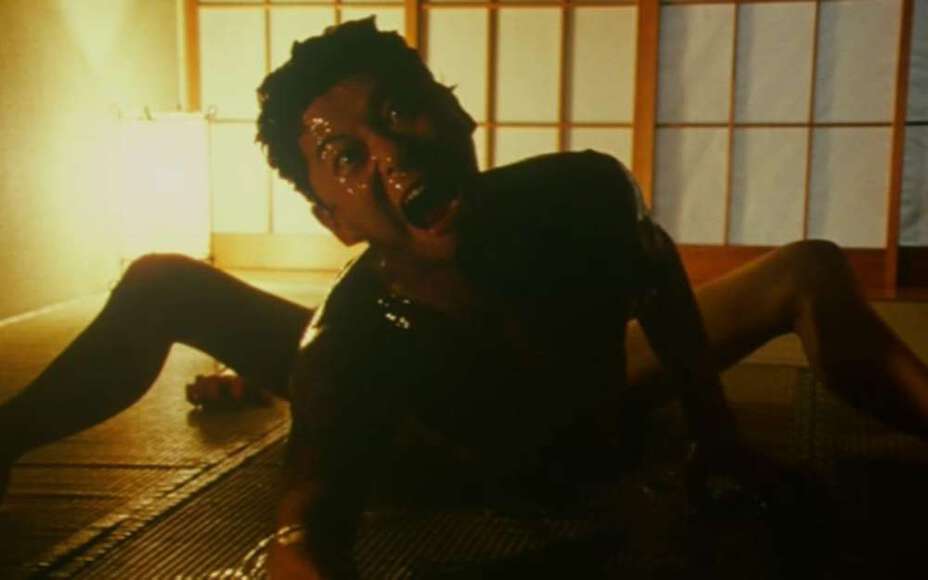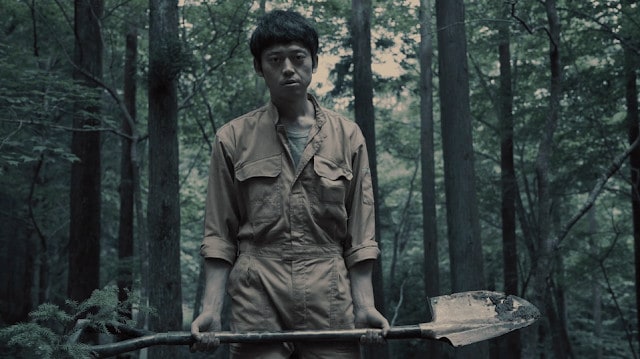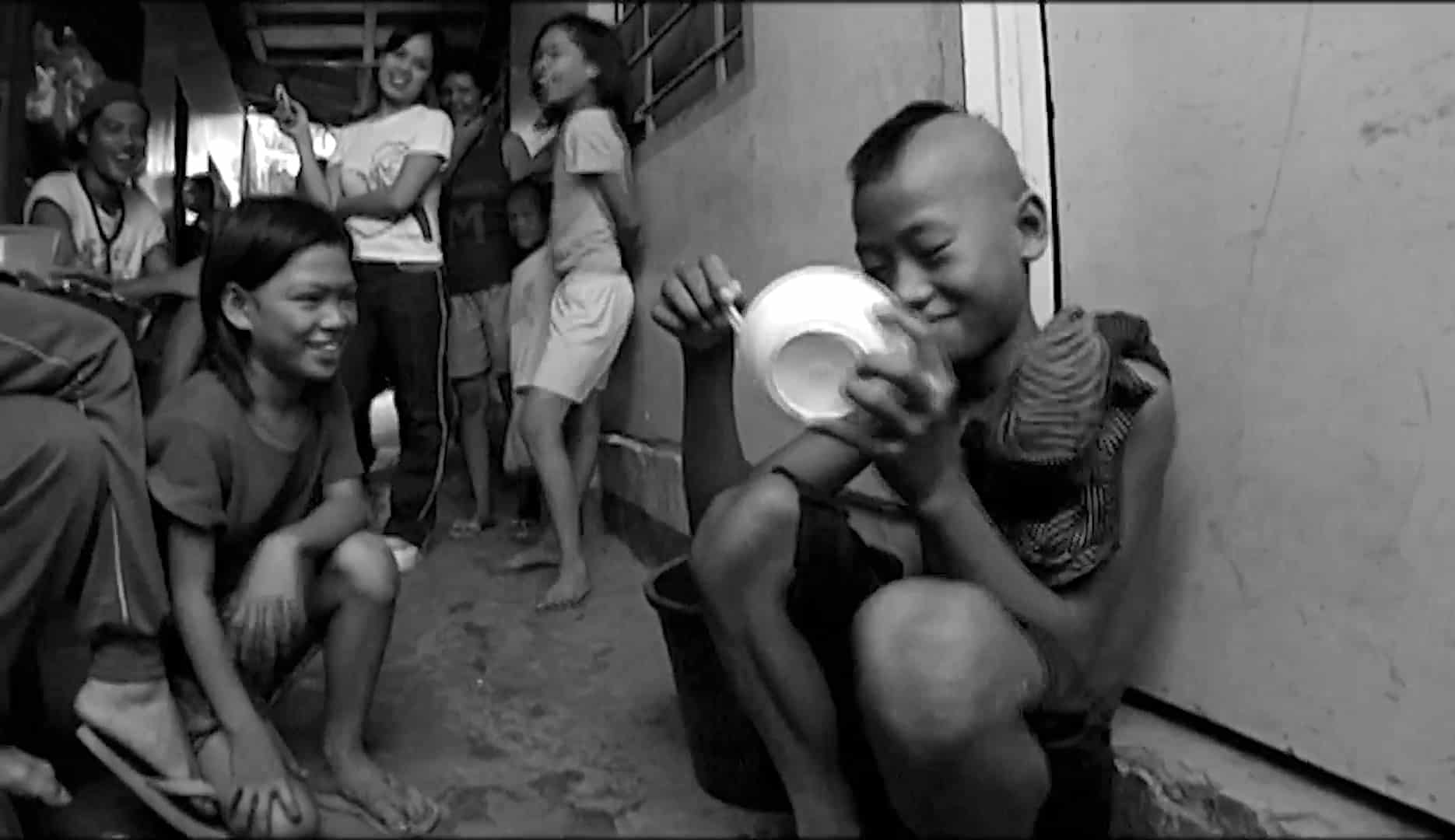With the number of adaptations Miike has dealt with in his filmography, it would be a surprise if he did not deal with a video game one. “Yakuza”, a 2005 Playstation 2 game provided a great opportunity considering its theme and aesthetics, and Miike did the most of it, coming up with one of the best video game adaptations I have ever seen on screen (the competition was not exactly high, but still), even managing to tame his own absurdness, to a degree at least.
Buy This Title
The story unfolds during a single, very hot night in Kamurocho (the video game's version of Kabukicho) and revolves around five different axes that eventually collide. Imanichi and Nakanishi try to rob a bank but their ways are more of a comedy duo than of robbers and thus they end up taking the clerks and the customers of the bank as hostages despite their initial plan. In a building next door, the police has set up a temporary headquarters, headed by Makoto Date and detective Noguchi. The first one seems to also have some kind of relationship with Kazuma Kiryu, an ex-yakuza who just got released from prison and is roaming the street with a young girl called Haruka Sawamura, in search of her mother but also his former boss, Kazama.
During their visit in a convenience store, they end up fighting some yakuza, in a series of events that results in the shop clerk Satory and his new girlfriend Yui with a bag full of money, and a seemingly unreasonable plan instigated by the latter, to continue robbing shops all night. Goro Majima, a psychotic yakuza who uses a metal baseball bat to hit comrades and enemies alike is chasing Kazuma to settle an old feud. A mysterious South Korean hitman is also roaming the area for his own reasons, while a Korean-Japanese weapon smuggler named Arakawa soon becomes part of the whole series of events, which also revolve around the disappearance of ten billion yen from the Tojo clan's deposits.

The slapstick elements and the absurd humor are still here, as presented by the comedic duo and the overall character of Goro Mazima, who is portrayed by Goro Kishitani as a paranoid caricature. However, the rest of the arcs are quite serious and Miike retains a sense of (extreme but still) measure, that works quite well for the film, while his control of a story that unfolds through so many different narratives is excellent, with Yasushi Yamamoto's editing also helping the most in that regard. The arc revolving around the Korean, which is portrayed in laconic coolness by Gong Yoo, the role of Date, played with intense dignity by Yutaka Matsushige, and the main arc that revolves around the great portrayal of the protagonist, Kazuma Kiryu, by Kazuki Kitamura all follow this path.
The result is a main narrative that functions like an action thriller that is much closer to “Agitator” than “The Mole Song” or “Yakuza Apocalypse“, for example, while in some cases, it touches the borders of film noir, particularly in the case of the gun smuggler episodes. This does not mean that it is as good as “Agitator”, but considering the base material, even the fact of the comparison being viable is an achievement.

The quite impressive battles obviously stray away from the “measured” tactic, particularly the ones involving Mazima, but these scenes, despite being quite memorable, are exceptions to the general aesthetics. On the other hand, along with the overall presentation of the neon-lights dominated area, courtesy of Hideo Yamamoto's cinematography, these sequences are where the visual aspect of the movie finds its apogee, through a raw brutality that benefits the most from the combination of SFX and great sound. Particularly the two between Kazuma and Goro, the final one, and the ones where the Korean is present will definitely stay on mind.
Managing to shoot a serious film of quality based on a video game is definitely not an easy task, but Miike managed to do just that, and “Yakuza: Like A Dragon” ends up being a more than entertaining spectacle.


